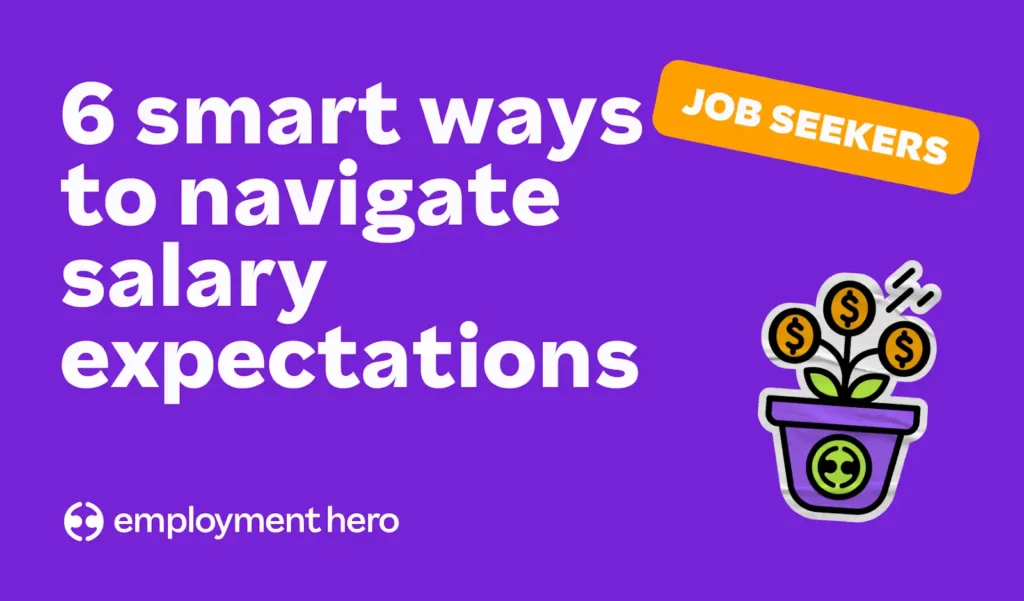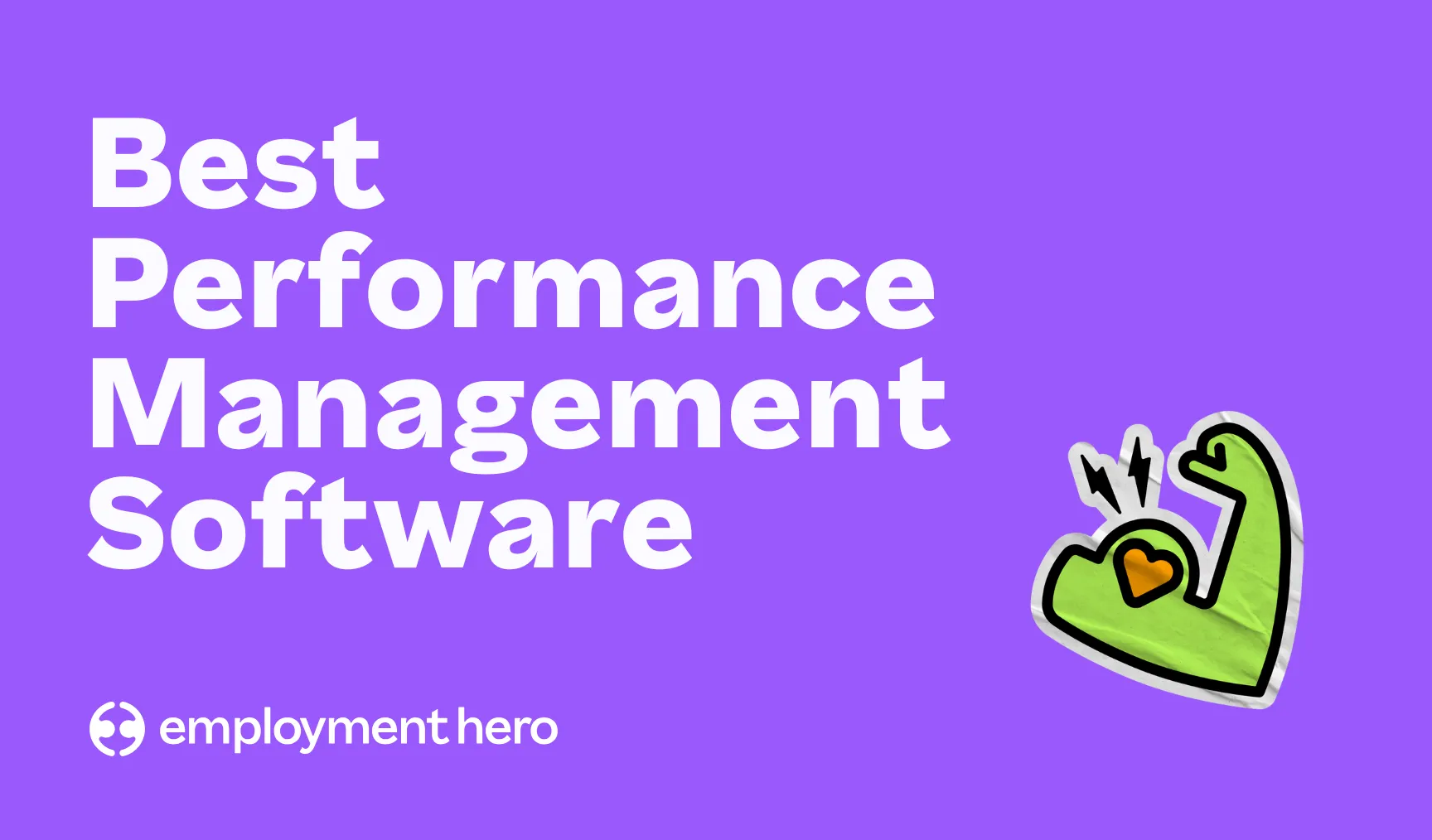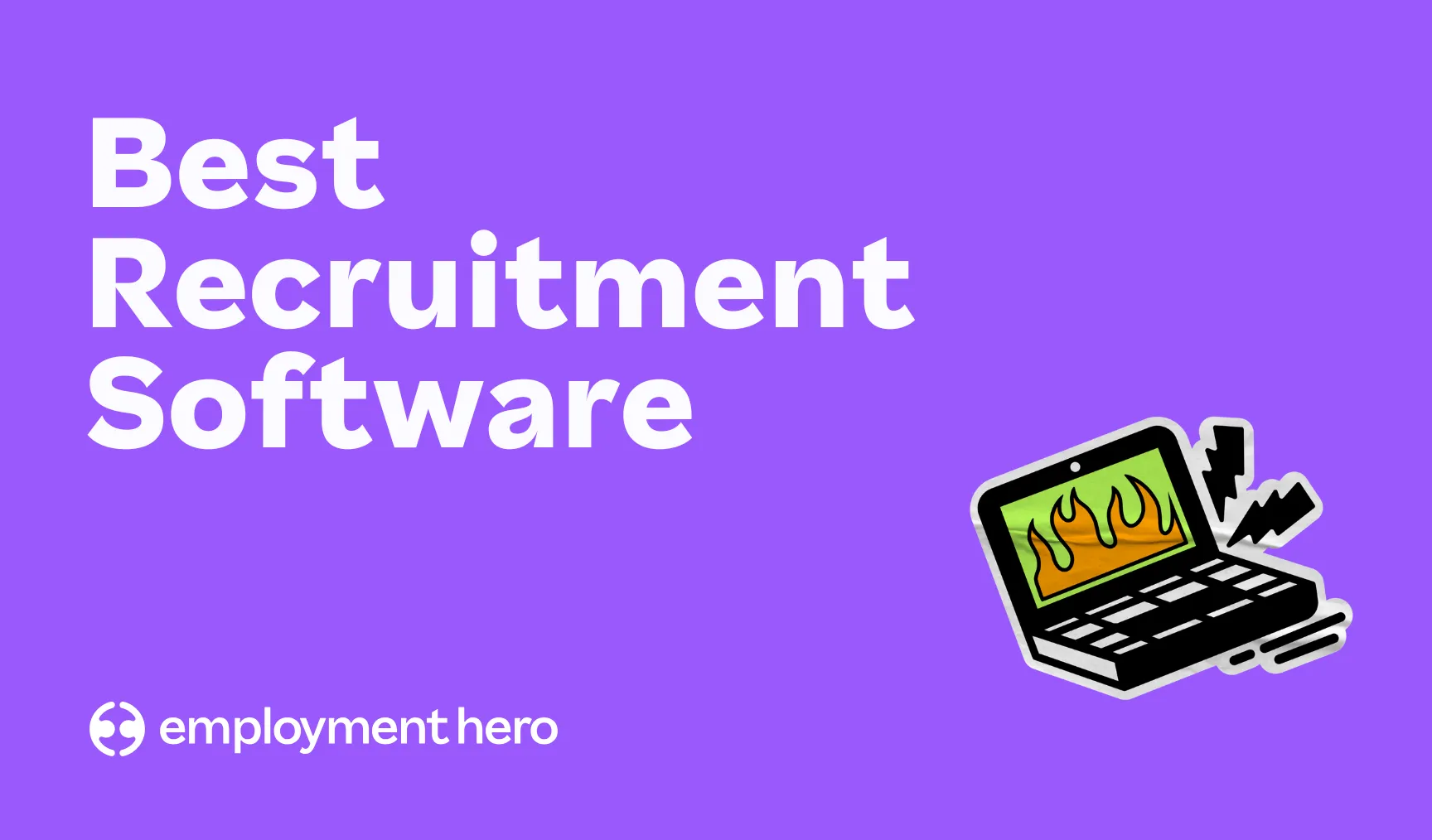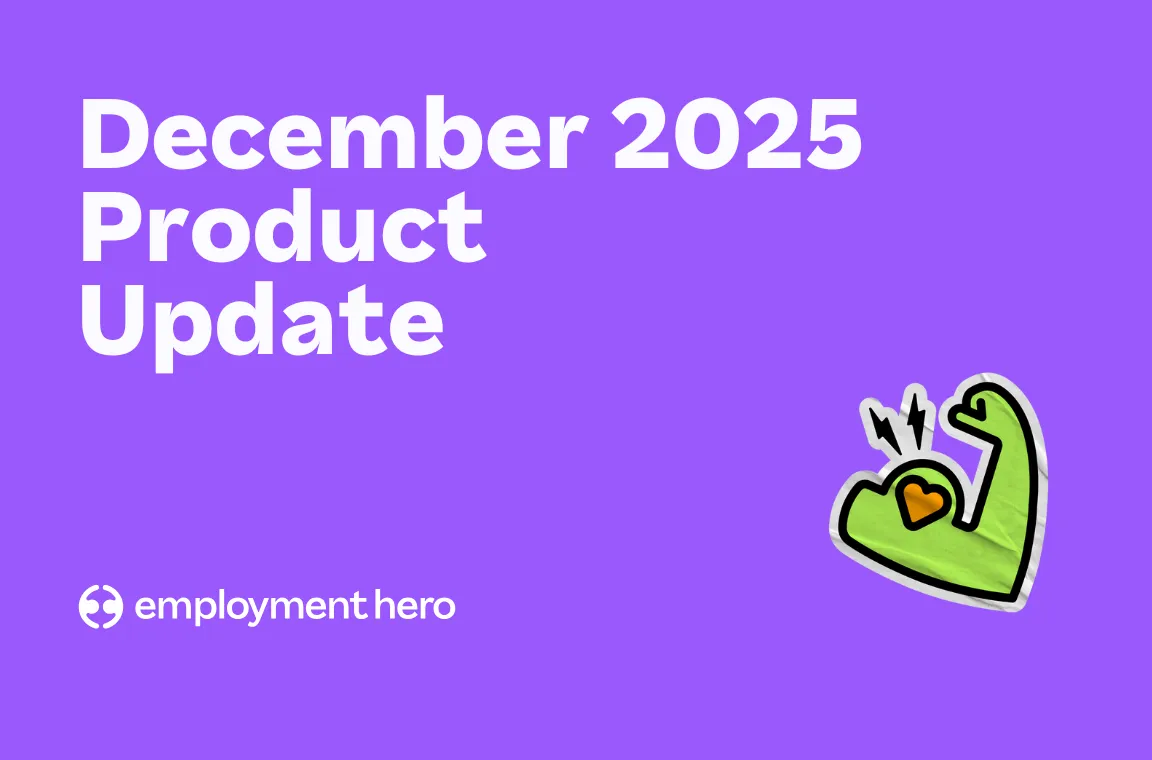6 ways to navigate salary expectations questions

Contents
How to answer salary expectations questions in interviews
Navigating salary questions in interviews can feel like walking a tightrope. Say too much, and you risk pricing yourself out of an opportunity. Say too little, and you might sell yourself short. Knowing how to handle these conversations is key to landing a job that meets your financial and career goals.
Here we’ve outlined six strategic approaches tailored to the Australian job market to help you master your next salary expectation conversation.
What are the current salary expectation trends in Australia?
The Australian job market is constantly evolving, and understanding the latest trends can give you a strategic edge. We asked Australian workers about the salary expectations for our Employee Movement and Retention Report. Specifically, how much of a pay increase they were seeking when looking for a new role.
- 1st place: 10% pay increase (34% of respondents selected this)
- 2nd place: 20% pay increase (23% of respondents)
- 3rd place: 0% pay increase e.g. on-par with current role (21% of respondents)
Only 15% were expecting an increase of over 30%. See the latest Employment Hero Jobs Report for detailed salary trends across industries.
6 smart strategies to talk about salary expectations
1. Approach the conversation with a collaborative mindset
Think of salary discussions as a two-way negotiation rather than a confrontation. Frame your expectations within the context of mutual value. For example, instead of bluntly stating a figure, say:
“Based on my research and the scope of this role, I believe a salary range between $80,000 and $90,000 is fair. I’d love to work together to reach a number that aligns with both the company’s goals and my contributions.”
This creates a tone of professionalism and collaboration.
2. Understand your market value
Being informed is your best asset in salary discussions. Use tools like Employment Hero’s average salary calculator or resources such as the Employee Expectations Insight Report to benchmark your salary range.
By presenting data-backed insights, you reinforce your position with credibility. For instance:
“According to the local market, professionals in similar roles earn between $85,000 and $95,000 annually. Would you be open to discussing a salary within that range?”
3. Understand the full Australian compensation package
Salary is more than just a number. Australian contracts often include superannuation, flexibility options, and lifestyle perks such as additional leave or work-from-home days. Before negotiating, evaluate the full compensation package, including:
- Superannuation contributions
- Professional development allowances
- Health and wellbeing perks
- Flexibility in work hours or location
A holistic view ensures you’re considering every element of your potential earnings.
4. Raise salary expectations early
It’s vital to address salary expectations early in the interview process to avoid mismatches. Introducing the topic up front can save both parties time, especially during lengthy hiring rounds. A proactive yet diplomatic approach might sound like this:
“To make sure we’re aligned from the beginning, could you share the budgeted salary range for this role?”
Being up front not only demonstrates professionalism but also helps set clear parameters for further discussions.
5. Be ready to negotiate professionally
Negotiation can be daunting, but preparation is key. Present your case with confidence, supported by evidence, like:
- Specific achievements from previous roles
- Relevant certifications or skills
- Industry benchmarks
If initial offers don’t meet your expectations, remain composed. Try:
“I appreciate the offer. Based on my experience and the value I bring, I was aiming for something closer to $90,000. Is there room to adjust the offer to better reflect that?”
6. Consider common non-monetary benefits in Australia
Non-monetary perks are becoming increasingly valuable, especially as more employers focus on holistic employee satisfaction. To enhance your negotiations:
- Ask for additional leave (e.g., parenting leave, study leave)
- Request professional learning and development (L&D) budgets
- Explore flexible work arrangements
Focus on benefits that align with your lifestyle preferences and career aspirations. For many Australians, these perks can outweigh a slightly lower salary.
What not to say when asked about salary expectations
It’s equally important to avoid vague or passive responses. Phrases like “I’m open to anything reasonable” or “Whatever you think is fair” can undermine your position. Instead, be clear, direct, and confident in your value. If you’re unsure, provide a range rather than a fixed figure.
Sample responses to salary questions
To simplify preparation, here are tailored responses by career level:
- Entry-Level Candidate:
“For someone with my skills and qualifications, I’m seeking a starting salary between $55,000 and $65,000. I’m flexible based on the overall compensation package.”
- Mid-Level Professional:
“Given my expertise and industry knowledge, I’m looking at a range of $85,000 to $95,000, including superannuation. I’m eager to discuss how I can bring value to the team within that range.”
- Executive Candidate:
“For a position of this seniority, I’d expect a total package in the range of $150,000 to $170,000. This aligns with market trends and my track record of leadership success.”
Final checklist before your interview
Before your next interview, use this quick checklist to prepare:
- Research typical salaries for your role and industry in Australia.
- Benchmark your desired range using tools like salary calculators.
- Practice responses, ensuring clarity and confidence.
- Prepare evidence; highlight accomplishments and market-relevant skills.
- Identify any non-monetary benefits you’d like to negotiate.
Want to land your dream job?
Salary discussions are just one piece of the puzzle. Employment Hero is here to help you craft standout resumes, perfect your interview skills, and connect with tools designed to elevate your job search.
Take the next step by exploring these resources:
- Common job interview questions with sample answers
- Resume dos and don’ts
- 10 tips to make your job application stand out
Ready to start looking? Set up a profile on Employment Hero Jobs so employers can use our AI-powered SmartMatch tool to proactively reach out to you for opportunities.
Mastering your career starts with mastering the job hunt. Take charge today and thrive tomorrow!
Related Resources
-
 Read more: Best Performance Management Software in Australia 2026
Read more: Best Performance Management Software in Australia 2026Best Performance Management Software in Australia 2026
Boost employee performance with the top seven performance management software in Australia for 2026. Compare features and find the right…
-
 Read more: Top 7 Best Recruiter Software in Australia 2026
Read more: Top 7 Best Recruiter Software in Australia 2026Top 7 Best Recruiter Software in Australia 2026
Find the top seven recruiting software in Australia for 2026. Enhance your hiring process with these powerful recruitment tools.
-
 Read more: Product Update: December 2025
Read more: Product Update: December 2025Product Update: December 2025
Welcome to the December 2025 product update from the Employment Hero team. We’ve got lots to share around Custom Forms,…























